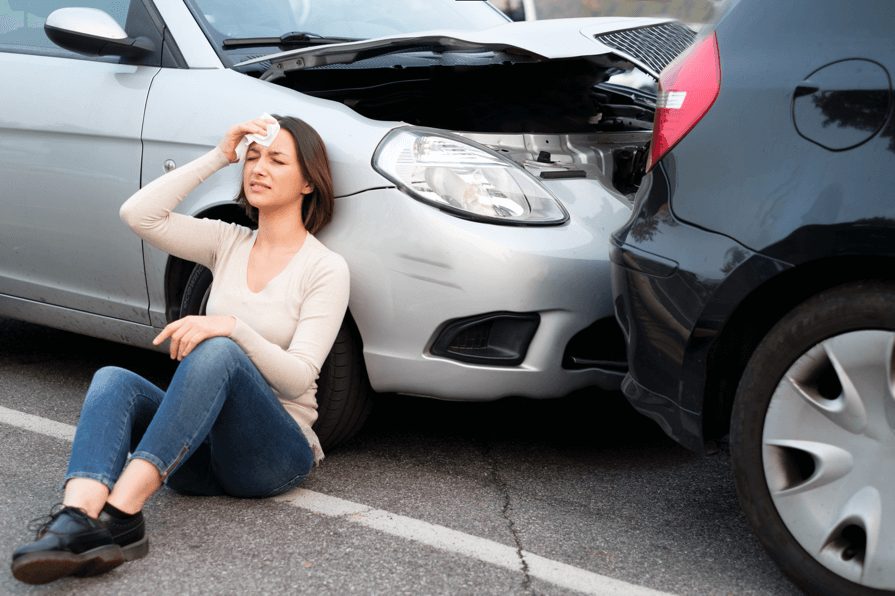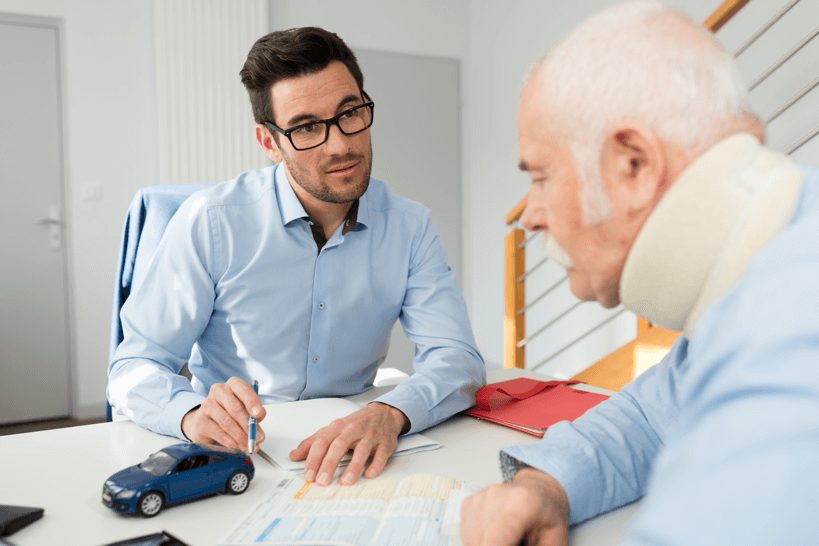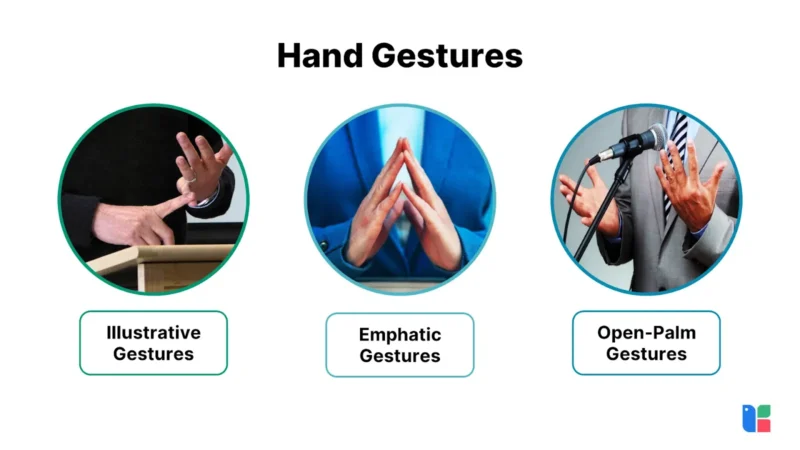What To Know In A Legal Sense If You Had An Auto Accident
What To Know In A Legal Sense If You Had An Auto Accident
Disclaimer: If you’ve been in an auto accident, the following information only serves as general guidance as to the legal process. It does not, however, serve as actual legal advice. To further understand the legal nature of an auto accident, it is recommended that you speak with a licensed attorney who has experience with auto accidents similar to yours.
Being involved in an auto car accident can be devastating. The accident can make your life difficult in the long run as you need to consider many things about its aftermath. It is really no fun at all. For instance, you have to deal with yourself getting in a car accident, the insurance companies, your injuries, your possible liabilities, and much more. It could really be a total mess on your part. For those reasons alone, below are the things you need to know in a legal sense if you had an auto accident.
What Do You Need To Do After Your Car Collision?

You’re on your way home, driving your car when you, unfortunately, get in a car accident. You’re shocked, and you really don’t know what do. You’re inside the vehicle sustaining some minor injuries – and you’re only thinking of getting away from the crash as soon as possible. In cases like these, here are the things to do after your car collision:
- Remain calm – When you’re in an auto accident, it is best if you stay calm until you’re able to get help from other people. Freaking out cannot do anything about your accident. It could just worsen the situation.
- Ensure your safety – If you’re awake following the accident, ensure your safety until the arrival of an ambulance and the police. You can take actions to avoid further smash-ups and damage, and can leave the car and the dangers it may pose while waiting for assistance.
- Ask assistance from the police – Contact the nearest police station in your accident location and ask for the assistance of a police officer. In some situations, calling the police is not necessary as the other party will choose to settle with you alone. Here, you have the option not to agree and call the police immediately.
- Check if you have injuries – When you sustain some injuries, directly call 911 for an ambulance. If others are in the car, assess them for injuries as well and don’t move anyone if a head or neck injury is suspected.
- Collect all the information about the accident – It’s essential if you take all the information about the accident. You can write down the following information after the car crash:
- Time of the collision.
- The exact location where the accident happened.
- Description of the people involved in the crash.
- Description of the vehicles involved including their plate numbers, color, model, year and any other images.
- Get information about the other driver involved in the car accident – You can exchange information with the other driver and write down the following:
- Name of the other driver.
- Contact information including telephone number and email.
- Residence address.
- Driver’s license number.
- Insurance number.
- Policy number.
- Secure plenty of pictures – Taking some photos of the actual car collision can help you afterward. Use your cellphone if available to take and document photos regarding your car’s damage. These pictures are useful when you’re filing a claim with your insurance company and against the offender party. Do not skip any marks relevant to the accident. You can also get some pictures from a distance so that you can show the images of the entire accident. On the other hand, if there’s a chance that you’re the offender party, it’s also good that you take pictures of the car you crash. If the other driver blames you, you’ll be able to defend yourself.
- Get witnesses – In auto accidents like these, getting witnesses is vital because they may have seen what actually happened during the collision. Their observations can be helpful in the investigation process. Take their name, contact numbers, and address.
- Contact your insurance company – Whether you’re at fault or not, it does not matter anymore. You just call your insurer and report the accident right away. It is to ensure that your side of the story is put on the record before the other party files their claim too. When you call the insurance company, provide all the required information so that they can quickly process your claims.
Why Do You Need To Call A Police Officer?

When you are a party to an auto accident, calling a police officer is one of the “must-do” things. So, here are the reasons why the assistance of a police officer is needed:
- The assistance of a police officer is required by law – Most State laws require the presence of a police officer in the actual accident area, especially if there are injured individuals or there is traffic as a result of the damage to the cars. The officer’s assistance in the accident scene can keep the individuals involved calm. It’s expected that emotions can heat up because of the crash, but the police personnel will serve as a referee when things are out of control. When a police dispatcher is doing their investigation, they will make a police report which can be used as evidence of the auto accident.
- The police report can determine who is at fault – In determining liabilities arising from a car accident, a police report is one of the reliable documents that your insurance company can refer to. Without the report, it would be difficult to figure out who is the aggrieved and the offender party.
- The police report can prevent fraud – In a car accident, there will always be two sides of the story – one is from the injured party and the other from the offender. Regardless of the stories, the police report can determine the exact reason for the collision. From there, it can protect you from fraud especially when the other party declares that they are the injured one in the accident – and this declaration is hard to prove without the intervention of the police officer.
What is Car Accident Law?
When there are cases of auto accidents, the car accident law applies. It is an area of law which determines who is liable for the damages in the event of the car accident. It also consists of legal rules relating to principles of negligence. It means that the doctrine of negligence can be applied in car accident cases as one of the bases for filing legal action. However, laws involving auto accidents vary from one State to another. If you just have encountered an auto collision nearby, check your State laws so that you’ll be able to protect your legal rights in this stressful situation.
How To Determine If The Other Driver Involved Is Negligent?
A car accident usually happened because of the negligence of one of the parties involved in the said crash. Negligence is the failure to perform a proper care in doing something. So, if you’re accusing the other party of being negligent, you can also prove the acts of carelessness through the following examples:
- Drunk While Driving – If you’re intoxicated and you force yourself to drive, this can be considered as a negligent behavior.
- Speed Driving – When you’re driving at an excessive speed, you are more likely to get in an auto accident.
- Failure to Keep A Proper Look-Out – If you’re careless in keeping a proper look-out when driving, you are also guilty of negligence.
- Falling Asleep While Driving – When you’re too sleepy, and you forget that you’re driving, this behavior can be a remiss one.
- Failure to Maintain Proper Control of the Motor Vehicle – You can be negligent in driving when you fail to keep your motor vehicle under control.
When Should You File A Car Accident Lawsuit Claim Against The Offender Party?
If you’re experiencing a lot of trouble because of a recent auto accident, it is still crucial that you know your legal rights. For instance, the accident can cause stress on your part to the extent that you’re not doing well in your life right now. You’re worried about your damaged car, you have incurred injuries from the accident, and your insurance company cannot shoulder all your medical bills and other expenses. These things are making your life miserable. For that reason alone, you’ll think if it’s best to file a car accident lawsuit claim. So, here are the things to consider when you decide to sue the other party:
- Gather All Pieces of Evidence – When you’re instituting legal action, one of its crucial elements is the submission of evidence. If you have clear and convincing evidence to prove your claim against the offender, you can have the option of bringing the case before the Court of Law. In car accident cases, the police report, medical certificate from your attending physician, insurance claims documents, pictures of the actual accident and the testimonies of the credible witnesses are taken into consideration. Having this information will help you decide if you’re going to go after the offender through a legal proceeding.
- Consult Your Case With An Attorney – If you’re not sure about filing a car accident case against the other party, it’s still good when you are advised by an attorney. Your car accident lawyer knows the law, and can adequately represent you in all stages of the court proceedings. Since attorneys are knowledgeable in the field of law, they can give you a valuable recommendation as to whether you should push through with your lawsuit or not.
What Are The Things To Consider When Deciding To File A Car Accident Case?
If you have all the essential documents ready and you also have afforded yourself with the assistance of a lawyer, the next move involves a decision-making process. Below are the things to consider when deciding to file a car accident case against the wrongdoer.
- Estimate the Extent of Damage Caused To You – As pointed out, not all insurance companies will compensate you for the damage caused by the auto accident. That is why your lawyer is there to help you understand what the types of damages you can recover from the aftermath of the collision are. Of course, the goal here is to get what is fair for you as the aggrieved party. The following are the types of damages you can think through upon bringing a formal complaint in court:
- Economic Damages – In a litigation where you’re seeking the recovery of compensation, economic damages such as lost wages, property damages, medical expenses, transportation expenses, retaining costs and many others are noted.
- Non-Economic Damages – Aside from economic damages, you can also be compensated with non-economic damages such as your pain and suffering, physical disability, emotional trauma, loss of enjoyment, loss of family relationships, lost time to work and many more. So, if you feel like you deserve more than the compensation of financial losses, you can go after the transgressor by filing a lawsuit after the auto accident.
- Remember the Statute of Limitations – Instituting a car accident lawsuit claim in court does not necessarily happen overnight. Your State law provides a specific period as to when you are allowed to bring an action before the Court of Law. This time frame is called the Statute of Limitations. When you fail to exercise your legal rights insofar as the statute of limitations is concerned, your failure can be tantamount to a waiver to assert the right you are entitled to it.
- Take Note of the Attorney’s Fees and Other Legal Charges – If you’re seeking relief about the injuries and damages you have sustained as a result of an auto accident, you are duty-bound to get your lawyer for representation purposes. Because of that, you may be paying your lawyer with attorney’s fees and docket fees for submitting your case in court. These may be costly on your part.
- Do Not Just Rely On Your Insurance Company – Not only may the person who hit you not have insurance, but your own insurer may not be of much help when you’re involved in an auto accident. But, you cannot also forget that the insurance companies are also doing their own “business thing.” So, they will also do everything to keep costs down. They will try to save money and may also try to get away from their actual duties and responsibilities as your insurer.
What Are the Things to Remember When You Already Filed The Lawsuit?
All are set, and your decision to file a car accident case is final. You are prepared with all your documents, and you are even accompanied by your legal counsel during the actual filing of the case. Below are the essential things to remember when you already filed the lawsuit:
- The Discovery Process – When your formal complaint has reached the court, the court will acquire the jurisdiction to hear and decide on the case you have filed before it. You will be named as the plaintiff and the other party as the defendant. From there, the discovery process will start. Here, depositions, pieces of evidence, testimonies of witnesses are requested by both parties.
- The Possibility of Getting A Settlement – Negotiation may be faster than going through the whole litigation process. The out-of-court settlement is an option you can take to resolve a car accident dispute. But the downside here is that if you’re the aggrieved party, you may recover a lower amount of compensation than could be possible if you were to push through with the formal lawsuit. The advantage, on the other hand, is cost you are going to save from paying your lawyer and other court fees.
- The Trial Proper – If there’s no compromise settlement on both parties, the case will now proceed its trial proper where the case is assigned to a judge who has the authority to hear, conciliate and decide the matter before him. During this phase, the judge will listen to both parties and examine all the evidence presented.
- Execution of the Monetary Judgment – After careful examination of all the documents and testimonies, the judge will render a monetary judgment favoring one party over the other. If it’s proven that you’re the aggrieved party and the other is at fault, you’ll be awarded the compensation for the damages caused by the auto accident.
So, here are some of the key things you need to know in a legal sense if you had an auto accident in your location. During this distressing time, take time to familiarize the applicable car accident laws in your State so that you can be able to safeguard yourself from the stress of having to go to the court to seek for legal remedies and to defend yourself if you are the offender.

Scott Jeffreys
Scott Jeffreys is a promising young law enthusiast that hopes to bring his youthful spirit in his field. He is currently writing for the Dolman Law Group, and tries to add a refreshing modern take to topics on the legal world that people can learn from. Scott enjoys his free time with friends and family, and loves to cook for them.





